Politics
Appeal court nullifies Metuh’s conviction, orders fresh trial

The Court of Appeal in Abuja on Wednesday nullified the conviction of former spokesman for the People’s Democratic Party (PDP), Chief Olisa Metuh, on alleged money laundering and corruption charges.
The court held that Okon Abang, judge of a federal high court in Abuja, exhibited bias in Metuh’s case.
The Economic and Financial Crimes Commission (EFCC) had arraigned Metuh on seven counts of allegedly receiving N400 million from the office of the National Security Adviser.
On February 25, 2020, the trial court pronounced him guilty and sentenced him to seven years in prison.
Metuh through his counsel filed an appeal in March 2020.
As part of the 10 issues raised by the appellant for determination by the appellate court, Metuh argued that he was not given a fair trial.
He submitted that the trial judge was biased, considering some of the remarks made during the trial.
He prayed the court to upturn the judgment of the lower court.
Delivering judgment on Wednesday, a three-man panel of justice agreed that the trial judge showed influence of bias against the appellant.
Stephen Adah who read the court’s decision, said, “The narrative of the trial judge suggests someone who didn’t enjoy trying the appellant and counsel because he said they were picking on him.
“He was struggling with the case and even wished that he should be recused out of the case. The influence from this narrative is indisputably to say the least that a trial judge was angered only in his mind that he was wrongly influenced and showed bias against the appellant in this case as this is what manifests from all the outburst, he has infused in his judgment.
“Learned trial judge showed in his comments, the influence of an abnormal desire all inclination to pursue a predetermined line of action against the appellant.
“This no doubt is an influence of bias against the appellant. There is no way the learned trial judge can be seen to be detached from the malice against the appellant in the case as alleged.
“The duty of a trial judge is to be completely neutral in the case before him. A judge must not only be impartial; he must be seen to be impartial to both sides.
“His duty is to sit and determine the issues raised by parties and to conduct an examination into the parties. He is not an umpire just yet. His job is to find out the truth and do justice according to law.
“Appellants have been able to convince us in this court from the records shown and from all the utterances of the judge that there is likelihood of bias signifying that he was no freeman while the trial was going on.
“If this is allowed, it will set a dangerous president and that is never allowed by our constitution. Trial that was conducted in a hostile atmosphere without any regard to the constitutional right of the person accused can never be upheld.
“The learned trial judge unfortunately has shown the whole world that much was into that judgment than what was put in evidence before the judge.
“It was in this respect that we cannot ignore it. This court in its duty, set that decision aside. Judgment of the lower court delivered on 25th of February 2020 cannot stand because of the evidence of bias. It is accordingly annulled.”
Justice Adah subsequently ordered a return of the suit to the Federal High Court for fresh hearing by another judge.
Politics
Labour Party suspends chairman, secretary in fresh crisis
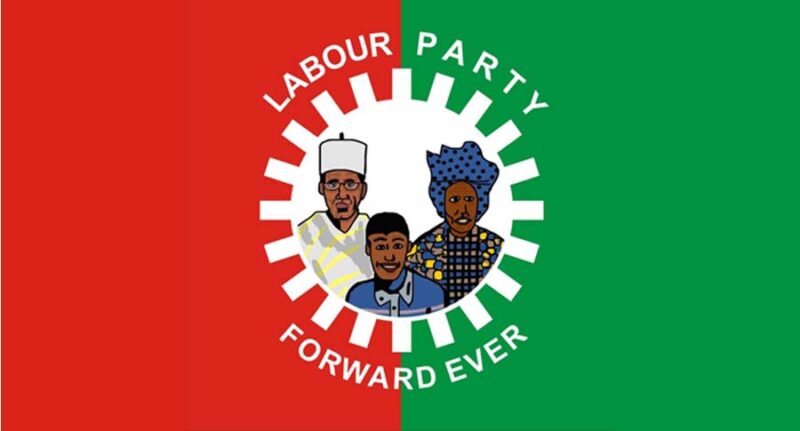
Labour Party suspends chairman, secretary in fresh crisis
The Labour Party (LP) in Cross River State has suspended its chairman, Mr. Ogar Osim, along with Secretary Felix Etim, over allegations of embezzlement, anti-party activities, and other issues.
The suspension follows claims that Osim failed to maintain the party’s state secretariat and engaged in misconduct.
The State Disciplinary Committee, led by Chairman Bonnie Adie and Secretary Ibiang Igri, also appointed Eugene Obia and Allen Ekpe as acting chairman and secretary, respectively, until a formal congress can elect new officials.
READ ALSO:
- Bauchi to shut down health centres during nationwide protest
- Trouble in Edo APC, members protest Philip Shaibu’s return [VIDEO]
- Protest: Oba of Benin urges Nigerians to be patient with govt
A statement from the party explained that the decision was based on a thorough investigation into the alleged misconduct. It expressed confidence that the new acting leaders would provide effective leadership and ensure the party’s smooth operation in the state. Members were urged to support the interim leadership.
In response, Ogar Osim dismissed the suspension as laughable, claiming that the individuals who signed the suspension letter are impostors. He stated that their names are not listed in any official party registers and argued that any disciplinary action should have been authorized by the party’s legal adviser. Osim announced plans to challenge the suspension in court.
Labour Party suspends chairman, secretary in fresh crisis
Politics
Trouble in Edo APC, members protest Philip Shaibu’s return [VIDEO]
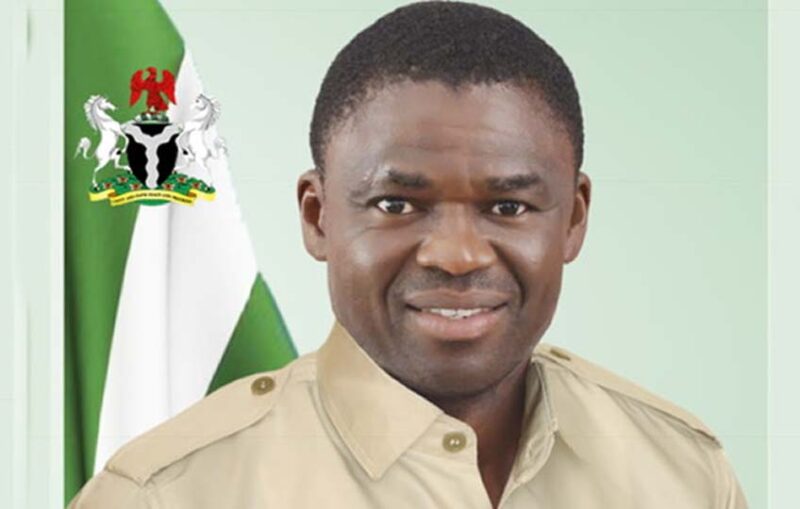
Trouble in Edo APC, members protest Philip Shaibu’s return [VIDEO]
A viral video has surfaced showing a large group of members from the Etsako West chapter of the All Progressives Congress (APC) rejecting the return of former Edo State Deputy Governor, Philip Shaibu, to the party.
The VIDEO captures aggrieved members who label Shaibu as a “serial betrayer” and voice their distrust in his loyalty and political integrity.
The protesters, holding placards with various inscriptions such as “Philip Shaibu, we don’t want you in APC,” “APC not home of political prostitutes,” “We don’t want crisis in APC,” and “You have no political value, Shaibu,” expressed their disapproval of Shaibu returning to the party.
They also chanted “All we are saying, we don’t want Philip,” emphasizing their firm stance against Shaibu’s return to the APC fold.
The protesters stated that their deep-seated resentment towards Shaibu is because of his tendency not to be loyal to established party protocols.
One of the protesters said: ”He has had a history of switching political allegiances. His return will potentially cause instability and internal conflict in the party.
READ ALSO:
- Protest: Oba of Benin urges Nigerians to be patient with govt
- Kidnappers paid us 15% ransom commission for providing victims bank details – Suspects
- Ukraine faces war bleak future as drones open new battlefront
”The former deputy governor’s political journey has been marked by several party changes, which indicates he lacks commitment to any political ideology.
”As we prepare for the forthcoming governorship election, we must maintain unity and coherence, and avoid opportunists like Shaibu at all cost.”
Trouble in Edo APC, members protest Philip Shaibu’s return pic.twitter.com/thAje9aN2D
— Newstrends.Ng (@Newstrends_ng) July 25, 2024
Trouble in Edo APC, members protest Philip Shaibu’s return [VIDEO]
Politics
Tinubu welcomes ex-Senate President Anyim into APC

Tinubu welcomes ex-Senate President Anyim into APC
President Bola Tinubu formally received a former Senate President, Anyim Pius Anyim, into the All Progressives Congress on Wednesday.
Anyim, a former Secretary to the Government of the Federation during President Goodluck Jonathan’s tenure, recently defected from the Peoples Democratic Party to join the APC.
Tinubu welcomed Anyim to the Presidential Villa in Abuja, where he was presented by a delegation led by Imo State Governor, Senator Hope Uzodimma, and Ebonyi State Governor, Francis Nwifuru.
Anyim expressed his commitment to Nigeria’s progress, stating, “There is need that we all should put hands together to move the country forward.”
READ ALSO:
- Customs seize vehicles illegally taking large amount of fuel to Cameroon
- Illegal petroleum storage facility discovered in Lagos
- Navy seizes private residence converted to illegal refinery in Rivers
He announced his defection on Saturday, July 13, 2024, when he led a contingent of his supporters into the APC fold during the party’s Local Government Area election campaign finale in Abakaliki, Ebonyi State capital.
Anyim led a large delegation of prominent individuals, comprising former lawmakers, governorship candidates, and thousands of their supporters, from various parties, including the Labour Party’s Edwin Nkwegu and Senator Obinna Ọgba, into the APC fold.
APC leaders, including National Chairman Abdullahi Ganduje, Uzodinma, Governor Francis Nwifuru, Minister of Works, David Umahi, and State Chairman Stanley Emegha, had welcomed the new members into the party fold.
Tinubu welcomes ex-Senate President Anyim into APC
-

 News2 days ago
News2 days agoNLC can’t withdraw from protest it didn’t organise – Ajaero
-

 News3 days ago
News3 days agoNorthern group attacks Reps Minority Caucus for demanding Nnamdi Kanu release
-

 News2 days ago
News2 days agoMinimum wage: Akpabio says domestic workers can’t earn less than N70,000
-

 News2 days ago
News2 days agoFG unveils training programme for 1,000 Nigerians in AI, blockchain
-
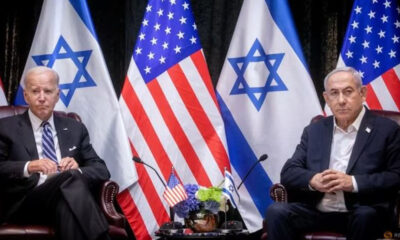
 International16 hours ago
International16 hours agoNetanyahu, Biden hold talks over tense Gaza ceasefire
-

 Africa3 days ago
Africa3 days agoDozens arrested in Uganda anti-government protests
-

 metro2 days ago
metro2 days agoPastor remanded for allegedly defiling teenager, attempting abortion
-
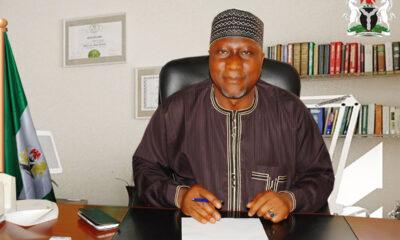
 metro1 day ago
metro1 day agoNERDC Executive Secretary Prof Ismail Junaidu slumps, dies

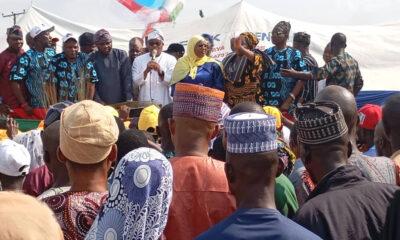

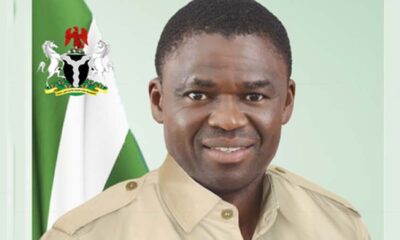





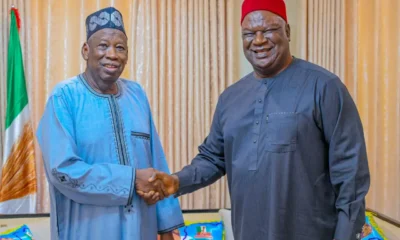

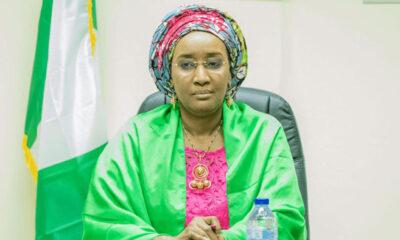


You must be logged in to post a comment Login